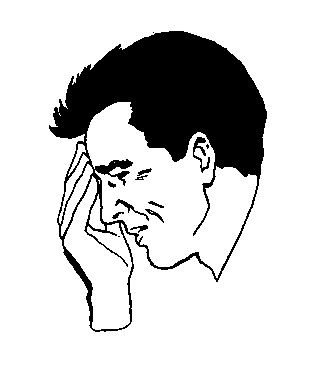| A tension headache is a condition involving pain or discomfort in is usually described as between mild and moderate, and happen two |
 |  | ||
 |
|
 | |
 |  |
Treatment: Chiropractic adjustments seem to help suffers of tension headaches. This is especially true when the muscles at the base of the skull at the back of the head tighten and spasm. An adjustment may relieve the stiffness and the tension pain. |
The information provided on this site is not a substitute for professional medical advice, examination, diagnosis, or treatment. Always seek the advice of a qualified health care provider with any questions you may have regarding a medical condition. If you think you may have a medical emergency, call your doctor or 911 immediately. |






















